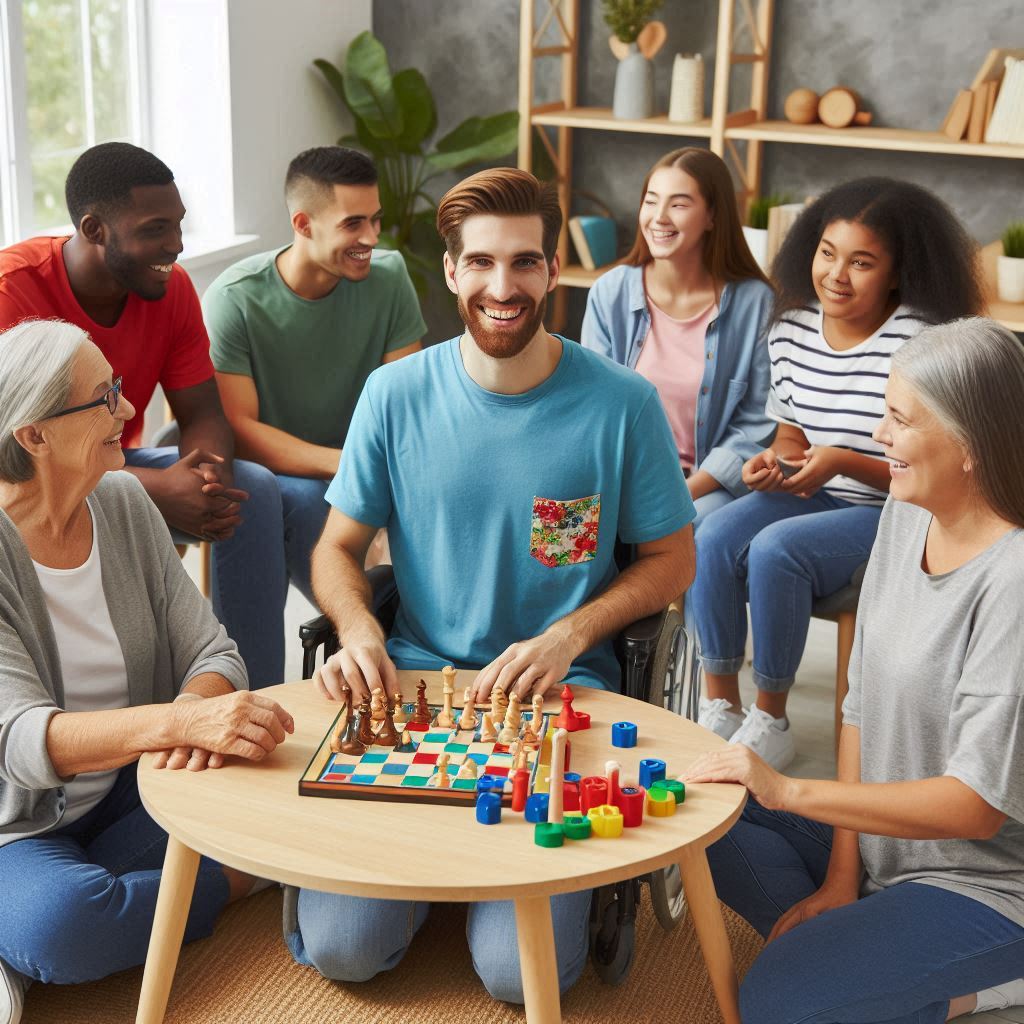Introduction
Interdisciplinary teams in healthcare consist of professionals from various disciplines working together. They collaborate to provide comprehensive care for patients.
This approach ensures that all aspects of a patient’s health are addressed. These teams include doctors, nurses, therapists, social workers, and other specialists.
Each member contributes their expertise to create a holistic care plan. By working together, they improve patient outcomes and enhance the quality of care.
Importance of Collaboration
Collaboration among healthcare professionals is crucial for effective patient care. It allows for the integration of different perspectives and expertise.
This collaboration leads to more accurate diagnoses and better treatment plans. When professionals work together, they can address complex health issues more efficiently.
Effective communication and teamwork are key components of successful interdisciplinary teams. These teams can adapt to the unique needs of each patient, providing personalized care.
Overview of Recreational Therapy
Recreational therapy is a form of therapy that uses recreational activities to improve health. It focuses on physical, emotional, and social well-being.
Recreational therapists design activities that promote healing and enhance quality of life. These activities include sports, arts and crafts, music, and outdoor activities.
Recreational therapy can be used in various healthcare settings, such as hospitals, rehabilitation centers, and nursing homes.
Benefits of Recreational Therapy in Healthcare Settings
Recreational therapy offers numerous benefits for patients. It helps improve physical health by encouraging exercise and movement. These activities can increase strength, flexibility, and coordination.
Recreational therapy also supports mental health by reducing stress and anxiety. Engaging in enjoyable activities can boost mood and promote relaxation.
Additionally, recreational therapy enhances social skills by encouraging interaction with others. It can help patients build relationships and improve their communication skills.
Recreational therapy is particularly beneficial for individuals with chronic illnesses. It provides a sense of normalcy and enjoyment, which can improve their overall well-being.
For patients with disabilities, recreational therapy offers adaptive activities that cater to their abilities.
These activities can help improve self-esteem and independence. In rehabilitation settings, recreational therapy aids in recovery by promoting physical and emotional healing.
In essence, Interdisciplinary teams and recreational therapy play vital roles in healthcare. Collaboration among professionals ensures comprehensive care for patients.
Recreational therapy offers numerous benefits, enhancing physical, emotional, and social well-being. Integrating recreational therapy into interdisciplinary teams creates a holistic approach to patient care.
This combination leads to improved patient outcomes and a higher quality of life.
Role of Recreational Therapists
Definition and Scope of Recreational Therapy
Recreational therapy, also known as therapeutic recreation, uses leisure activities for therapeutic benefits. These activities help improve physical, emotional, and mental well-being.
Recreational therapists, certified professionals, tailor interventions to individual needs and preferences. They work in diverse settings like hospitals, rehabilitation centers, and community health programs.
The scope of recreational therapy includes a wide range of activities. These can be as varied as arts and crafts, music therapy, sports, and outdoor adventures.
The aim is to enhance the patient’s functional abilities, quality of life, and social skills.
Recreational therapists assess patients’ needs and develop personalized treatment plans. They consider the patients’ interests, abilities, and therapeutic goals.
How Recreational Therapists Contribute to the Overall Treatment Plan
Recreational therapists play a vital role in interdisciplinary teams. They collaborate with doctors, nurses, physical therapists, and social workers.
Their input ensures a holistic approach to patient care. By incorporating leisure activities into treatment plans, they address the patient’s overall well-being. This approach often leads to better patient outcomes.
These therapists use their expertise to complement medical and therapeutic interventions. They help patients manage stress, improve their mood, and enhance social interactions.
Recreational therapy also promotes physical activity, which can aid in recovery and rehabilitation. For patients with chronic conditions, it provides a means to manage symptoms and improve quality of life.
Recreational therapists regularly monitor and adjust treatment plans. They work closely with other healthcare professionals to ensure coordinated care.
Their interventions can reduce hospital stays and lower healthcare costs. Patients often report higher satisfaction with their treatment when recreational therapy is included.
Examples of Activities and Interventions Used in Recreational Therapy
Recreational therapists use a variety of activities and interventions. These are carefully selected based on the patient’s interests and therapeutic needs.
For example, arts and crafts can improve fine motor skills and provide a creative outlet. Music therapy can enhance mood and reduce anxiety.
Sports and physical activities are commonly used to improve physical fitness and coordination. These activities can be adapted to different ability levels, ensuring all patients can participate.
For instance, wheelchair basketball or adaptive yoga can be included in a treatment plan. Outdoor activities like hiking or gardening offer therapeutic benefits and connect patients with nature.
Animal-assisted therapy is another popular intervention. Interacting with animals can reduce stress, lower blood pressure, and provide emotional support.
Equine therapy, involving horses, is particularly effective for patients with physical or emotional challenges.
Group activities are also integral to recreational therapy. These can include team sports, group outings, or social events. Such activities promote social interaction, teamwork, and a sense of community.
They help patients build social skills and reduce feelings of isolation.
In summary, recreational therapists bring valuable skills to interdisciplinary teams. Their interventions enhance physical, emotional, and social well-being.
By incorporating leisure activities into treatment plans, they provide holistic and effective patient care.
Collaboration with Other Healthcare Professionals
Effective communication and teamwork are essential in interdisciplinary settings to ensure the best possible patient care.
Recreational therapists often work closely with doctors, nurses, and other specialists to create comprehensive treatment plans.
Importance of Communication and Teamwork in Interdisciplinary Settings
- Clear communication among team members ensures that everyone is on the same page regarding the patient’s needs and goals.
- Collaboration allows for a more holistic approach to patient care, addressing physical, emotional, and social aspects of well-being.
- Working together as a team helps prevent gaps in care and promotes efficient and effective treatment outcomes.
How Recreational Therapists Work with Doctors, Nurses, and Other Specialists
Recreational therapists collaborate with healthcare professionals from various disciplines to provide individualized care for each patient. They share insights and expertise to develop treatment plans that meet the patient’s unique needs.
- When working with doctors, recreational therapists may provide input on the therapeutic benefits of recreational activities for patients’ recovery.
- Nurses play a crucial role in implementing and monitoring recreational therapy interventions, ensuring patients receive proper care and support.
- Collaboration with other specialists, such as physical therapists or psychologists, allows recreational therapists to address the broader needs of patients.
Benefits of a Holistic Approach to Patient Care
Utilizing a holistic approach to patient care means considering the whole person and all aspects of their well-being, rather than focusing solely on physical symptoms or conditions.
- By addressing physical, emotional, and social needs, recreational therapists can improve patients’ overall quality of life and enhance their recovery outcomes.
- A holistic approach promotes patient-centered care, where treatment plans are tailored to individual preferences, interests, and goals.
- Collaborating with other healthcare professionals ensures that all aspects of a patient’s well-being are considered and addressed, leading to more comprehensive and effective care.
In a nutshell, interdisciplinary collaboration and teamwork are essential in providing high-quality patient care.
Recreational therapists play a vital role in working with doctors, nurses, and other specialists to create holistic treatment plans that address the diverse needs of patients.
Transform Your Career Today
Unlock a personalized career strategy that drives real results. Get tailored advice and a roadmap designed just for you.
Start NowRead: Genetic Counseling for Cancer Patients
Addressing Physical and Mental Health Needs
Recreational therapy plays a crucial role in improving physical functioning and mental well-being in individuals seeking treatment.
This form of therapy utilizes recreational activities to address a wide range of physical and emotional needs.
How Recreational Therapy Improves Physical Functioning and Mental Well-Being
- Physical activities incorporated in recreational therapy help enhance motor skills and physical strength.
- Engaging in recreation promotes cognitive functions and helps individuals develop problem-solving skills.
- Participating in group activities fosters social skills and improves communication abilities.
- Recreational therapy boosts self-esteem and confidence, leading to better mental health outcomes.
Examples of Addressing Both Physical and Emotional Needs
- Utilizing art therapy to help individuals express their emotions while improving fine motor skills.
- Incorporating music therapy to enhance mood and reduce stress, benefiting both physical and mental well-being.
- Engaging in outdoor activities like hiking or gardening to promote physical fitness and mental relaxation.
- Adventure-based therapy to challenge individuals physically and emotionally, fostering personal growth.
Importance of a Well-Rounded Approach to Patient Care
It is crucial for healthcare providers to adopt a holistic approach when caring for individuals with physical and mental health needs.
Integrating recreational therapy into treatment plans ensures that patients receive comprehensive care that addresses their diverse needs.
By combining physical activities, creative expression, and social interaction, recreational therapists create a supportive environment where individuals can heal and grow.
This multidisciplinary approach not only improves physical functioning but also enhances mental well-being, leading to better overall health outcomes for patients.
Through collaboration with interdisciplinary teams, recreational therapists can tailor treatment plans to each individual’s unique needs, ensuring a personalized approach to care.
By addressing both physical and emotional needs through recreational therapy, patients can experience holistic healing that promotes overall wellness and quality of life.
Read: Salary and Job Outlook for Genetic Counselors
Individualized Treatment Plans
Interdisciplinary teams in healthcare settings play a crucial role in providing comprehensive care to patients by incorporating a variety of professional perspectives.
When it comes to recreational therapy, these teams work collaboratively to create individualized treatment plans that address the unique needs and preferences of each patient.
Recreational therapists are key members of interdisciplinary teams, bringing their expertise in utilizing recreational activities to improve physical, cognitive, emotional, and social well-being.
By assessing patient needs and preferences, recreational therapists can tailor interventions that are not only effective but also engaging and enjoyable for the individual.
One of the primary benefits of tailoring recreational therapy interventions to meet individual goals is the increased likelihood of successful outcomes.
When treatment plans are personalized to align with a patient’s specific needs and interests, they are more likely to be motivated and actively participate in therapy sessions, leading to improved overall wellness and quality of life.
Collaborative Approach
Interdisciplinary teams regularly collaborate and communicate to ensure that each patient’s treatment plan is effective and aligned with their goals.
By discussing the patient’s health status and progress, team members can adapt and modify treatment plans as needed to optimize outcomes and address any challenges that may arise.
Feedback from team members is crucial in the development and implementation of individualized treatment plans.
Recreational therapists work closely with other healthcare professionals to coordinate care and ensure that all aspects of a patient’s well-being are being addressed holistically.
Through this collaborative approach, interdisciplinary teams can leverage the unique expertise of each team member to create comprehensive and effective treatment plans that meet the diverse needs of patients.
By working together, these teams can provide personalized care that supports the overall health and wellness of individuals undergoing recreational therapy.
Read: Genetic Counseling and Health Insurance

Promoting Socialization and Community Integration
One of the key benefits of recreational therapy is its ability to promote socialization and community integration for patients.
Through various therapeutic activities, patients can develop social skills and build relationships with others in a supportive environment.
How recreational therapy can help patients develop social skills and build relationships
- Engaging in group activities helps patients practice communication and teamwork.
- Recreational therapy promotes a sense of belonging and camaraderie among participants.
- Therapeutic games and exercises encourage patients to interact with one another.
- Through shared experiences, patients can bond and form meaningful connections.
Importance of community outings and group activities in promoting inclusion
- Community outings provide opportunities for patients to engage with the outside world.
- Participating in group activities helps patients feel connected to a larger community.
- Interacting with peers in a recreational setting fosters a sense of belonging and acceptance.
- Being part of a group promotes social inclusion and reduces feelings of isolation.
How interdisciplinary teams collaborate to support patients in social integration
- Recreational therapists work closely with other healthcare professionals to create inclusive programs.
- Social workers provide additional support and resources for patients struggling with socialization.
- Collaboration between different disciplines ensures a holistic approach to promoting social integration.
- Therapists and counselors collaborate to address patients’ unique social needs and challenges.
In fact, promoting socialization and community integration is a crucial aspect of recreational therapy.
By participating in group activities and community outings, patients can develop social skills, build relationships, and feel a sense of belonging.
The collaboration of interdisciplinary teams further enhances the support and resources available to patients seeking to improve their social integration.
Read: Career Opportunities for Genetic Counselors
Evaluation and Progress Monitoring
When it comes to recreational therapy, evaluating and monitoring progress is crucial.
Let’s explore the importance of tracking outcomes and progress in recreational therapy, how interdisciplinary teams assess the effectiveness of interventions, and the role of data collection in improving patient care.
Importance of Tracking Outcomes and Progress
One of the key aspects of recreational therapy is the ability to track outcomes and monitor progress. It allows therapists to assess the effectiveness of interventions and make necessary adjustments to improve patient care.
By measuring outcomes, therapists can determine if the goals set for each individual are being met. This information helps in evaluating the success of the treatment plan and making informed decisions about the next steps in therapy.
Showcase Your Business Today
Reach thousands of readers actively exploring professional services. Publish your business profile and grow your audience now.
Publish NowHow Interdisciplinary Teams Assess Effectiveness
Interdisciplinary teams play a vital role in assessing the effectiveness of recreational therapy interventions.
By bringing together professionals from different disciplines, teams can provide a well-rounded perspective on the patient’s progress.
Through collaboration and communication, team members can share their observations and insights, enhancing the evaluation process.
This collective approach allows for a comprehensive assessment of the patient’s response to therapy and ensures that all aspects of their care are considered.
Role of Data Collection and Measurement
Data collection and measurement are essential components of improving patient care in recreational therapy. By collecting relevant data, therapists can track progress, identify trends, and make evidence-based decisions.
Measuring outcomes allows therapists to quantify the effectiveness of interventions and determine the impact they have on the patient’s well-being.
This data-driven approach provides valuable insights that help in tailoring therapy plans to meet individual needs.
Furthermore, data collection enables therapists to identify areas for improvement and implement strategies to enhance the quality of care.
By continuously monitoring progress and evaluating outcomes, interdisciplinary teams can ensure that patients receive the best possible therapeutic interventions.
Conclusion
Incorporating recreational therapy within interdisciplinary teams offers multifaceted benefits to healthcare settings. It promotes holistic patient care by addressing physical, mental, and emotional well-being simultaneously.
The collaborative efforts of diverse healthcare professionals ensure comprehensive treatment plans tailored to individual patient needs.
Recap of the Benefits
Recreational therapy contributes significantly to patient rehabilitation and overall quality of life. It enhances physical mobility, cognitive function, and emotional resilience through structured activities.
The teamwork of therapists, nurses, doctors, and specialists maximizes treatment efficacy and patient outcomes.
Emphasis on Collaboration and Communication
Effective collaboration among healthcare professionals is pivotal in optimizing patient care. Interdisciplinary teams foster shared insights and expertise, leading to innovative therapeutic approaches.
Continuous communication ensures cohesive care plans, minimizes errors, and accelerates patient recovery.
It is crucial to recognize the invaluable role of recreational therapy in healthcare. Advocating for its integration and support can revolutionize patient care standards.
By endorsing its benefits, we empower healthcare providers to implement comprehensive treatment strategies that enhance both physical and mental well-being.
Research underscores the positive impact of recreational therapy on various patient demographics.
Case studies highlight significant improvements in motor skills, social interaction, and mental health among participants.
These findings underscore the need for continued investment and acknowledgment of recreational therapy’s therapeutic potential.
In summary, interdisciplinary teams incorporating recreational therapy exemplify the synergy of collaboration in healthcare.
They embody a patient-centric approach that values comprehensive well-being.
By advocating for support and recognition of recreational therapy, we pave the way for a future where holistic care is the cornerstone of healthcare practice.
Take Action Today
Join us in championing recreational therapy’s integration into mainstream healthcare. Your support can make a profound difference in patients’ lives.
Together, let’s elevate the standards of care and ensure every individual receives the holistic treatment they deserve.
Incorporating active voice and concise sentences, this section underscores the transformative impact of interdisciplinary teams and recreational therapy in modern healthcare.
Let’s continue to innovate and advocate for comprehensive patient care across all medical disciplines.
[E-Books for Sale]
The Big Book of 500 High-Paying Jobs in America: Unlock Your Earning Potential
$19.99 • 500 High-Paying Jobs • 330 pages
Explore 500 high-paying jobs in America and learn how to boost your career, earn more, and achieve success!
See All 500 High-Paying Jobs of this E-Book
1001 Professions Without a Degree: High-Paying American Jobs You Can Start Now
$19.99 • 1001 Professions Without a Degree • 174 pages
Discover 1001 high-paying jobs without a degree! Unlock career tips, skills, and success strategies for just $19.99!




